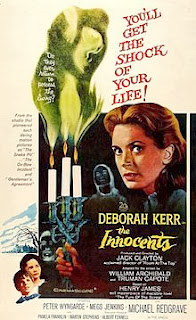 You cannot watch Abel Gance’s Napoléon. Awkward releases on DVD that are difficult to get hold of
either cost a princely sum or are cropped to a mere 115-mins. Napoléon, in its original form, was 9
hours and 22 minutes long. Shown at The Apollo Theatre in Paris in 1927, it was
known as the “version definitive”. Abel Gance’s classic film, screened with the
Philharmonic Orchestra at The Royal Festival hall last night was the product of
fifty years’ worth of restoration by noted film historian Kevin Brownlow. This 5-hour
32-minute version, separated by 20-min intervals and a 100-min dinner-break,
due to rights issues is difficult to track down. Kevin Brownlow himself
autographed copies of his book and maintains that this current-version is the
closest we will get to Gance’s “version definitive”.
You cannot watch Abel Gance’s Napoléon. Awkward releases on DVD that are difficult to get hold of
either cost a princely sum or are cropped to a mere 115-mins. Napoléon, in its original form, was 9
hours and 22 minutes long. Shown at The Apollo Theatre in Paris in 1927, it was
known as the “version definitive”. Abel Gance’s classic film, screened with the
Philharmonic Orchestra at The Royal Festival hall last night was the product of
fifty years’ worth of restoration by noted film historian Kevin Brownlow. This 5-hour
32-minute version, separated by 20-min intervals and a 100-min dinner-break,
due to rights issues is difficult to track down. Kevin Brownlow himself
autographed copies of his book and maintains that this current-version is the
closest we will get to Gance’s “version definitive”.
But what a joy to behold!
This sprawling epic charts Napoleon Bonaparte’s (Albert Dieudonné) rise from
youthful school days involving snowball fights through to his part in the French
Revolution and his invasion of Italy. Broken into four acts, the first immediately
showcases Gance’s technical skill and strong sense of creativity.
Pillow-fighting splits the screen in four, and then nine, as feathers fly. In
another sequences, the fast cutting and speed of snowballs elicits a sense of
chaos that pre-figures the wars he will fight as an adult. His part in the
French revolution begins in Paris as he witnesses the mob dominate the city,
before he returns to his homeland of Corsica and is forced to defend the island
from British rule: "Our fatherland is France” he tells us. After a chase
across the blustery, rocky sea, (and a cameo from Horatio Nelson) Napoleon
escapes, with his eagle returning by his side. The second act is considerably
shorter as Napoleon is promoted and leads an attack on the port of Toulon, a
French town that has been held by 20,000 English soldiers. The scenes are busy
and wet, rain is endless and the ground is muddy. Though they succeed in taking
back the port, their ships are burnt down by the English.

Part III, a longer-sequence, feels weaker as Napoleon is
offered positions in the military and turns them down. Romance blossoms between
upper-class victim of the French revolution, Josephine (Gina Manès), and
Napoleon. We see Josephine briefly in Part I and flashbacks remind us of the
moment they met. In a strange conclusion to their romance, Napoleon decides to
invade Italy and rushes his wedding to ensure he can leave quickly. His wedding
is an awkward affair as he demands the registrar to “skip” bits of the service
so it is concluded faster. The final act is where Gance truly proves how
important Napoléon is. Bonaparte meets
the ghosts of the revolution, effortlessly portrayed through half-exposed
shots, and he travels by carriage to battle. The screen then trebles in size
and three projectors’ reveal a screen that has never been so wide. The slight
gaps between each projector remind you of the time period and how innovative
Gance must’ve been to set-up three cameras and shoot the moments simultaneously.
Sometimes it is a wide-screen shot; sometimes a symmetrical triptych. Then it
changes into a visual collage of past, present and future exploits of Napoleon
– each screen is different and Gance cuts and layers images on top of one
another exceptionally fast. This is until the three projectors become the
French flag while waves appear on screen. The sheer scale is unbelievable and
Gance knew how impressive this sequence would be in a cinema. It is a marvellous
finale to a marathon of cinematic accomplishments.

Three decades before Cinerama, and Abel Gance was there first
with his Poly-vision in that final act. So many techniques prove how Gance was
reimagining the art form of cinema. Using a camera to swing from the
chandeliers above and through a party; attaching the camera to the horse;
somehow speeding alongside. How he managed to be so versatile with the camera
is a book unto itself (See Kevin Brownlow’s Napoleon:
Abel Gance’s Classic Film) – and indeed, Gance was proud of his silent-film
roots and their dependence on innovative camera techniques to tell a story.
 |
| This is not The Royal Festival Hall, just an example of the scale |
Watching Napoléon
is an event unto itself, and Carl Davis’ magnificent music combines Holst,
Haydn and Beethoven with Davis’ own proud, defiant themes that are as bold as John
William’s thematic scores. The last time Napoléon
was presented in the UK was 2004. In a time whereby everything is accessible on
DVD, it is satisfying and greatly humbling to be a part of a cinematic event
that has such deep roots in cinema history. Abel Gance broke the mould in 1927
and, though he failed to be fully acknowledged in his own time, now is the time
for appreciation – as he was clearly one of the best.
















